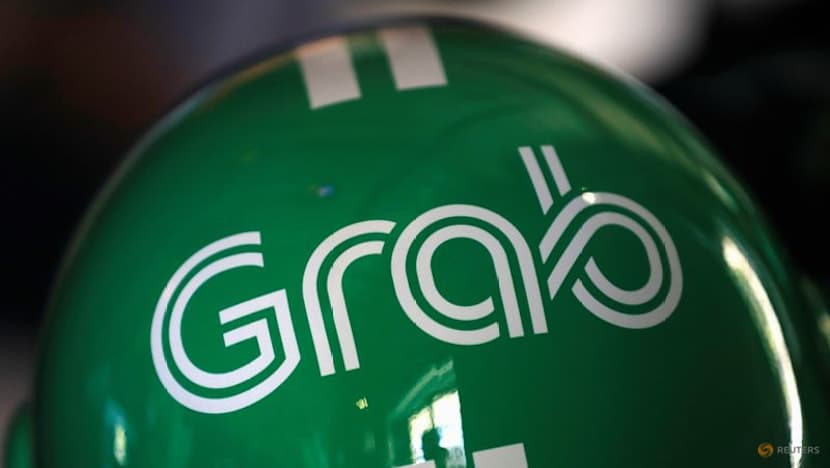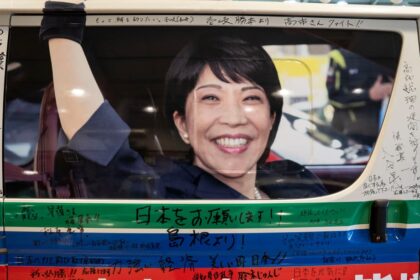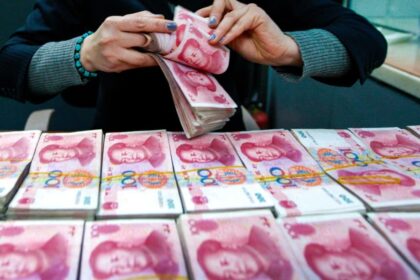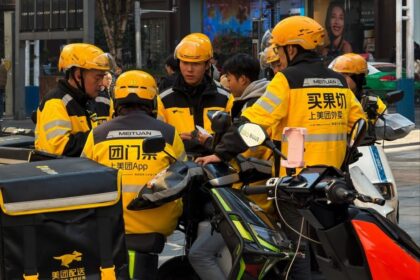Why this potential deal matters for Indonesia digital economy
Indonesia is weighing a tie up between two of Southeast Asia’s biggest consumer tech platforms, Grab and GoTo, after officials said the government is discussing a possible merger or acquisition. The sector sits at the center of daily life in cities and towns across the archipelago. Motorbike and car drivers move millions of people and meals each day, while delivery couriers keep small businesses and restaurants connected to customers. Officials describe the industry as strategic for jobs and growth. Gojek, the ride hailing arm of GoTo, counts more than 3.1 million online riders. Analysts estimate a combined Grab and GoTo could hold more than 91 percent of Indonesia’s ride hailing market, a level of concentration that would be rare in any large economy.
- Why this potential deal matters for Indonesia digital economy
- Who are Grab and GoTo
- How the government is approaching the talks
- Market power and antitrust risks
- What a deal could look like
- Impact on drivers, merchants and consumers
- Foreign ownership sensitivity and politics
- Regional competition and digital market context
- Timeline and what to watch
- Key Points
The talks are sensitive because they touch jobs, prices, and national pride. Indonesia’s leadership has met with both companies as it weighs the trade offs of consolidation. On one hand, a larger platform might bring scale and cost savings that could help expand services to more places and stabilize earnings for drivers and couriers. On the other, a single dominant company could weaken competition, reduce incentives and discounts, and leave drivers with fewer choices, all of which would be closely scrutinized by regulators and unions.
Market chatter for months has focused on the possibility of Grab purchasing GoTo in a deal that could value the Indonesian group at around 7 billion dollars, with a potential timeline discussed earlier this year. Both firms have been cautious in public. They have not offered detailed comments on the shape of any deal, even as officials signal that a decision could come soon.
Who are Grab and GoTo
Grab, based in Singapore and listed in the United States, grew from a ride hailing app into a regional platform for transport, food delivery, digital payments, and financial services. Indonesia is its largest market by population, and the company has poured investment into driver incentives, merchant services, and mapping technology to win share across major cities and secondary towns.
GoTo is Indonesia’s largest homegrown consumer tech group, formed by the 2021 combination of Gojek, the pioneer of motorbike ride hailing and courier services, and Tokopedia, one of the country’s leading online commerce platforms. GoTo remains a national symbol of the country’s digital ambition, even as foreign capital has backed its rise. According to its 2024 annual report, 73.9 percent of GoTo’s shares are held by foreign investors, including SoftBank Group and Taobao China Holding, a unit of Alibaba Group, with the rest held by Indonesian shareholders.
Market positions
Both companies have spent years competing city by city across Indonesia, and both are embedded in the daily economy through transport, meal delivery, and payments. Research from Euromonitor International indicates that the two companies together account for over 91 percent of Indonesia’s ride hailing market. Each also runs sprawling ecosystems of merchants, driver communities, and partners, with millions of small restaurants, convenience stores, and micro businesses tied to their platforms.
How the government is approaching the talks
Officials have called the sector vital to employment and digital inclusion. A senior spokesperson said the government is reviewing options and would come to a decision soon, while stressing that any deal must protect jobs and keep services affordable. The focus on drivers and couriers is central because millions of households rely on the flexible income that platforms provide in cities with heavy congestion and limited mass transit coverage.
Prasetyo Hadi, the presidential spokesperson, framed drivers as central to Indonesia’s growth story and signaled urgency in the process.
Online riders are economic heroes driving the economy.
That message suggests any outcome will likely include conditions on job security, benefits, and consumer protection. To address concerns about national ownership, officials and market sources have also floated the idea that Indonesia’s sovereign wealth fund, Danantara, could take a minority position in a combined entity. Such an arrangement would give the state a seat at the table and could ease concerns over a domestic champion being absorbed by a regional rival.
Market power and antitrust risks
A deal that places over 9 out of 10 rides on a single platform would invite intense review from the Business Competition Supervisory Commission (KPPU), Indonesia’s antitrust authority. Indonesia generally requires companies that complete qualifying mergers and acquisitions to notify KPPU after the transaction closes, although there is a pre assessment channel that companies can use to seek informal guidance in advance. KPPU can investigate and impose remedies or sanctions if it finds anti competitive effects. That can include fines or orders to divest assets, change business practices, or apply fair access rules for partners and users.
Labor groups have already raised red flags. The Indonesian Transport Workers Union, representing many app based drivers and couriers, has warned that a combination could depress incentives and reduce bargaining power. Union leaders say a merged platform would control around 91 percent of rides in Indonesia and a large share of food delivery across Southeast Asia, leaving few practical choices for workers and consumers. Some drivers also remember earlier consolidation in the market and claim that promotional budgets fell and average earnings softened after major deals in the past. Whether that experience would repeat is an open question, and it is one reason the government has centered drivers in its messaging.
Companies can propose remedies to address regulator concerns. Potential steps include commitments to maintain separate driver and consumer pricing policies for a period, limits on exclusive arrangements with restaurants or merchants, data firewalls between sensitive business units, and clear procedures for dispute resolution for drivers, couriers, and sellers on the platforms. KPPU would assess whether such measures preserve competition and protect users. If it judges that the risk to market fairness is too high, it can act even after a deal closes.
What a deal could look like
Two main paths are on the table. One is a straight acquisition, where Grab buys control of GoTo, possibly leaving some non core units outside the transaction. Another is a merger that folds overlapping business lines in Indonesia into a single platform with agreed governance. Market talk earlier this year pointed to a potential valuation for GoTo of about 7 billion dollars and indicated that financing options, including roughly 2 billion dollars in new debt, were discussed to fund a purchase. Both companies have kept quiet on specifics.
One idea that has surfaced is a role for Danantara, Indonesia’s sovereign wealth fund, which could buy a minority stake. That would aim to keep a local anchor in a combined company and signal that Indonesia retains an interest in a core piece of its digital infrastructure. The approach is not unusual in large strategic transactions in emerging markets, where governments look to balance private capital with national interests.
Even if deal terms are agreed, integration questions would be complex. Management would need to decide whether to run dual apps or consolidate into one, how to align driver and courier incentive schemes, and how to handle brands across transport, food delivery, payments, and marketplace services. Regulators could require specific commitments on pricing, contracts, and data handling before allowing the parties to move forward.
Impact on drivers, merchants and consumers
Drivers and couriers sit at the center of the debate. Many of them work across both platforms today, choosing the app that offers the best incentives and shorter wait times in a given area. If competition narrows, drivers worry that their take home earnings could fall if companies reduce bonuses. On the other hand, a combined platform might be able to cut operating costs and use those savings to offer steadier income floors, better insurance, or training and support programs. The outcome would depend on the policies the merged group adopts and on conditions set by regulators.
For merchants, especially small restaurants that depend on delivery orders, the shape of fees and promotional programs matters. High commissions or reduced marketing support can hurt thin margins, while dependable delivery and reliable visibility in the app can expand sales. Restaurant associations are likely to push for clear, fair contracts, transparent ranking rules, and responsive customer service, especially if one platform becomes the main route to online demand in many cities.
Consumers could see tangible changes in everyday costs. Competition between apps often shows up in the form of aggressive discounts and free delivery offers. A single dominant platform may be less generous with promotions. That said, a larger network can reduce pickup times, connect riders more efficiently to passengers, and improve coverage in suburban and rural areas that are currently less served. Pricing, waiting times, and service quality will be closely watched if any deal proceeds.
Foreign ownership sensitivity and politics
Pride in homegrown digital champions is strong in Indonesia. GoTo, created by the union of two Indonesian tech flagships, carries symbolic weight. The company’s shareholder base is majority foreign, based on its most recent annual report, and pairing it with Singapore based Grab could intensify debates about domestic control. Lawmakers and public figures have already voiced worries about economic sovereignty in the digital sector in recent years, especially in markets where platforms influence prices, jobs, and data flows.
To seek approval, any deal will likely need to satisfy several conditions that reassure policymakers and the public. These could include commitments to maintain and grow employment in Indonesia, improved benefits and safety nets for drivers and couriers, guarantees on data localization and privacy, and structures that preserve a role for Indonesian capital and governance. Ministers have been clear that the role of drivers and couriers is central, which suggests job security and fair earnings will be on the checklist.
Regional competition and digital market context
Southeast Asia’s digital economy is a contest of platforms spanning transport, food delivery, online commerce, and payments. Players include Grab, GoTo, Sea Group’s Shopee, Alibaba’s Lazada, and TikTok Shop, along with banks and payments startups. Indonesia is the region’s largest market by population and spending, so strategic moves in Jakarta ripple across the region. A combined Grab and GoTo could create a regional giant with unmatched reach in transport and food delivery, while also influencing the flow of capital and partnerships in online commerce and payments.
Regulatory attitudes are stiffening across Asia as governments confront the power of platforms. Recent cases in other jurisdictions have signaled that digital deals face a higher bar when they risk concentrating markets. That makes the Indonesian review process all the more important, because local regulators will assess how a tie up affects drivers, small businesses, and consumers in cities from Medan to Makassar, not just shareholders and lenders in global financial centers.
Timeline and what to watch
If the parties decide to proceed, a formal proposal would move to internal boards and major shareholders. In Indonesia, companies typically notify KPPU after closing if thresholds are met, but they can consult the authority beforehand for an initial view. A cross border deal of this size would likely involve multiple ministries and agencies, covering transport, communications, investment, labor, and consumer protection. Given the scale and the public interest, any timeline would depend on how quickly the parties can agree on remedies that satisfy regulators.
What regulators may require
Authorities have a wide set of tools they can use to keep the market fair if a deal advances. They can require pricing and surge rules that prevent sudden spikes during peak times, minimum standards for driver earnings and insurance, non exclusive contracts with restaurants and merchants, and transparency in how apps rank drivers, restaurants, and search results. Data privacy and cybersecurity protections would be part of the review, as would commitments to service coverage in less profitable areas to prevent digital deserts.
Key Points
- Indonesia is studying a potential merger or acquisition between Grab and GoTo in a sector it says is strategic for jobs and growth.
- Gojek reports more than 3.1 million online riders, and estimates show a combined Grab and GoTo would command over 91 percent of ride hailing in Indonesia.
- Officials say a decision could come soon, and they have framed drivers and couriers as central to any outcome.
- Market talk has valued GoTo at about 7 billion dollars in a possible deal, with financing options, including new debt, discussed.
- Indonesia’s antitrust authority KPPU can review completed deals and impose remedies or sanctions if it finds harm to competition.
- Labor groups warn a merger could cut incentives and weaken bargaining power for drivers, while supporters say scale could bring steadier income and wider service coverage.
- Indonesia’s sovereign wealth fund Danantara has been discussed as a potential minority investor to preserve a local stake in a combined entity.
- Both companies have kept public statements limited, while officials stress job protection, fair prices, and consumer safeguards.












